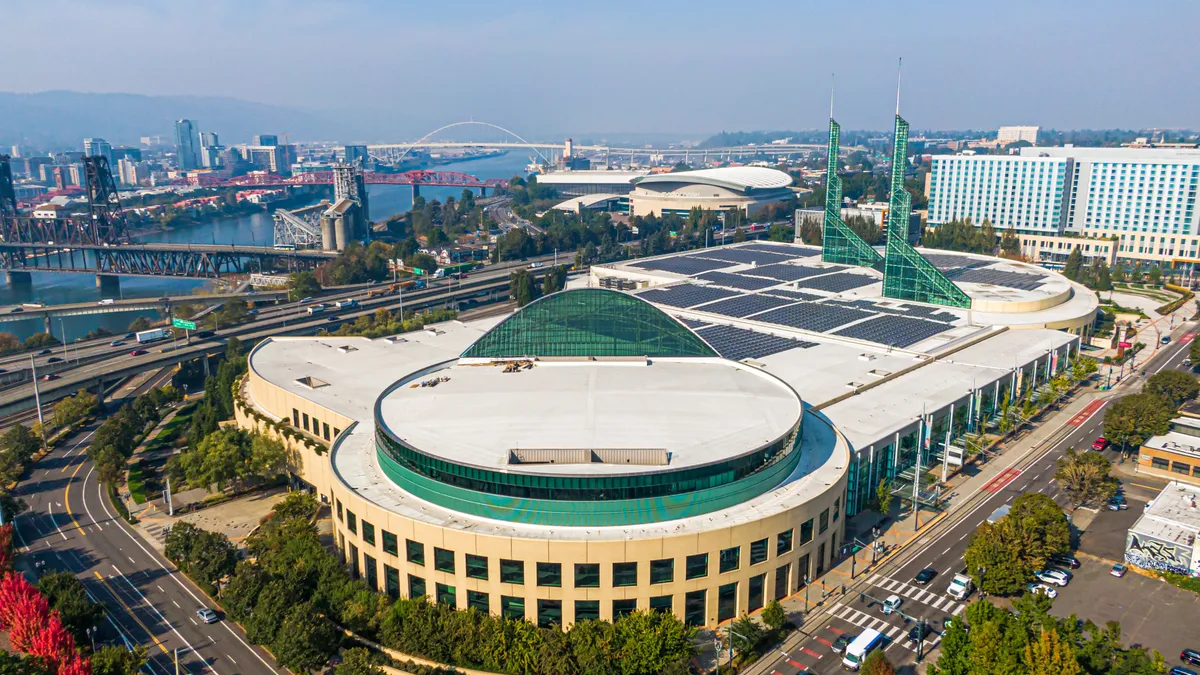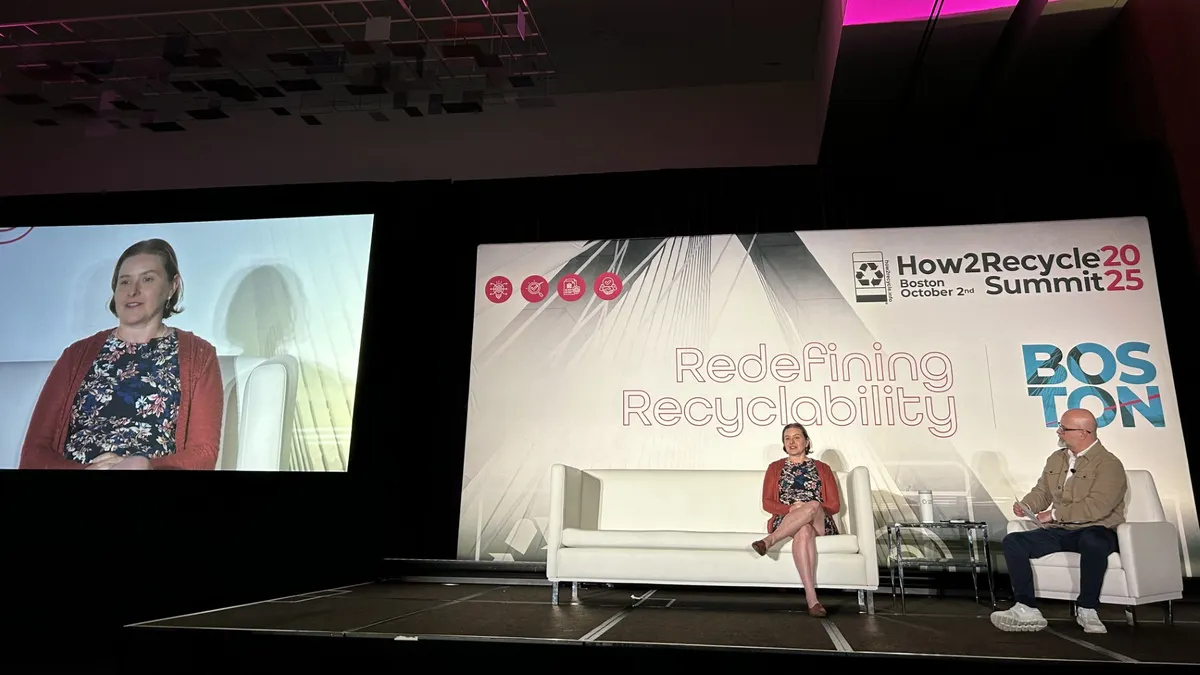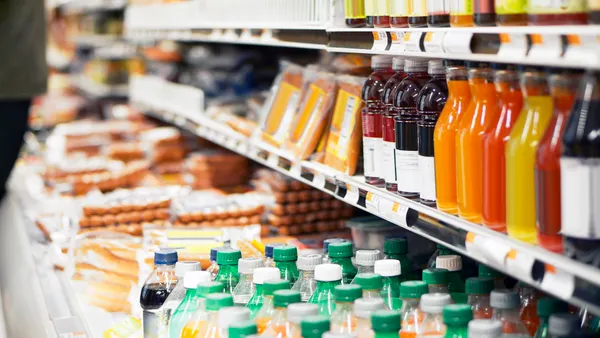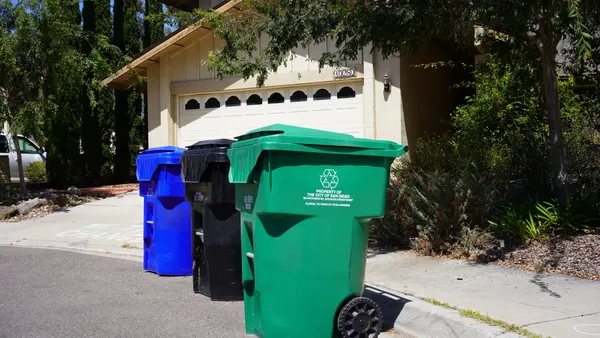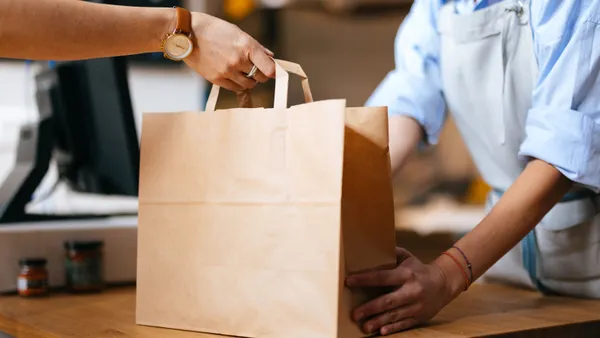Dive Brief:
- The Oregon Convention Center in Portland, Oregon, is implementing reusable containers at some on-site food service establishments — a first among convention centers, partner Bold Reuse detailed in an announcement Monday.
- Portland-based Bold Reuse, a full-service reuse platform, says that replacing disposable food ware with durable, reusable trays and plates “significantly decreases” the carbon, waste and water footprints linked to single-use plastic production and disposal.
- Reuse and refill systems have also gotten recent attention and advocacy at other venues and among federal lawmakers.
Dive Insight:
Large events like conferences at convention centers are notorious for generating a lot of waste. The Oregon Convention Center is taking steps to mitigate that.
OCC is the largest convention center in the Pacific Northwest and the first in the U.S. to attain LEED certification of existing buildings, among other sustainability distinctions. It’s chasing an 80% waste diversion rate through measures such as proper recycling or donating items and prohibiting licensees from bringing in certain materials like foam-core signage or plastic bags.
Limiting food service container disposal is an additional way to contribute to those goals. Bold Reuse co-founder Heather Watkins said of OCC in a news release: “By spearheading the implementation of a reusable foodware packaging program, they continue to lead the way in pioneering sustainable practices.”
The OCC program began as a two-month pilot in May, said Bold Reuse Customer Success Manager Kelsey Azoubel Mitchell. The partners are taking “a phased approach [to going to] a longer-term contract” as OCC implements reusable containers for certain menu items at select on-site cafes or food trucks. They’ll scale up once they’ve ensured smooth operations without “additional lift” for any food service employees, Mitchell said.
Additionally, “there's a little bit of R&D going on” related to the most appropriate vessels for different types of foods. The container optimal for serving grilled cheese may differ from that for pizza, Mitchell said. Bold Reuse stocks the center’s inventory of containers, picks up dirty containers to wash at Bold Reuse’s washing facility and then restocks OCC with clean containers.
Bold Reuse has also worked with other Pacific Northwest businesses such as the Portland Trail Blazers, the city’s professional men’s basketball team, as well as Starbucks. The company is looking at expansion opportunities in Seattle.
Aside from food packaging, closed environments from stadiums to movie theaters are swapping out single-use beverage cups for reusables. Reuse organization Upstream recently backed a life-cycle analysis of reusable and single-use cups. The report stated that the average stadium hosting 300 events annually uses 5.4 million single-use cups, which creates 63.75 tons of plastic waste. It recommended that venues shift to stainless steel cups as an environmental and cost-optimizing choice by either creating their own reuse systems, licensing third-party systems or hiring reuse companies.
Worldwide beverage giant Coca-Cola, which has a goal of serving a quarter of its global product volume via reusable packaging by 2030, recently highlighted its reusable packaging pilots, including a partnership with r.Cup, to scale reusable cups at sports and entertainment venues, festivals and other events in Denver, Los Angeles, San Francisco, Seattle and Washington, D.C.
U.S. lawmakers are also taking a closer look at reuse’s potential. The Subcommittee on Chemical Safety, Waste Management, Environmental Justice, and Regulatory Oversight, which is under the the Senate Committee on Environment and Public Works, recently met to discuss expanding refill and reuse infrastructure as a solution to single-use waste. Experts from the Ellen MacArthur Foundation, Loop Global and the Reusable Packaging Association speaking at the hearing called for federal recognition of, investment in and leadership on harmonized reuse definitions, infrastructure and supporting policies.
“I believe that achieving circularity in our economy hinges upon our taking an all-of-the-above approach to addressing our consumption and waste management practices, and I am inspired by the role that reuse and refill infrastructure can play in that transition,” said Committee Chair Sen. Tom Carper, D-Del.


